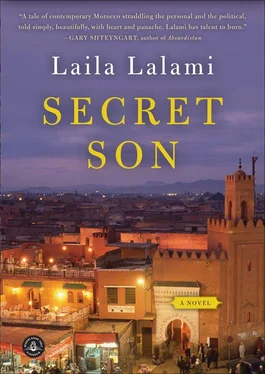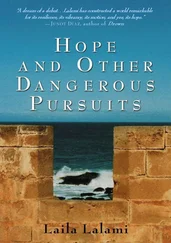FOREIGN DONORS
This is where foreign donors (typically from Saudi Arabia) come in. They contribute Qur’ans and religious books, which the Party resells in its establishments or through individual retailers, pocketing the profits. A Qur’an received for free and resold at 20 dirhams can net the Party as much as 18 dirhams. New Partisans, especially, are encouraged to contribute to the coffers of the Party by helping to sell religious materials. The Party receives occasional cash donations as well. For instance, the summer camp in Tétouan last year was entirely paid for by a wealthy Saudi friend.
FRIENDS IN LOW PLACES
However distasteful the Party’s methods may seem, they are legal. But Hatim Lahlou also has friends among the Tangier and Tétouan drug barons. The Party has recruited heavily in the two cities. A security source who spoke on condition of anonymity told me that the Party counts among its followers Ahmed Achiri (alias Ad Dib), one of the most notorious drug lords the state has ever had to contend with.
WHO IS HATIM LAHLOU?
Unknown just three years ago, the 35-year-old Hatim Lahlou has quickly garnered a following in the slums of Casablanca. Born in Rabat and educated in private schools and later at Lycée Descartes, Lahlou studied engineering in France before starting a doctoral degree at NYU. Then, at age 28, he left New York abruptly and traveled to Egypt, where he studied for four years.
Before Youssef could finish the rest of the article, Hatim took the magazine away and leafed through its pages again. “Benaboud does a cover story about me,” he said, “and he doesn’t even bother to talk to me. So of course this article is full of fabrications. He says our Qur’ans are from Saudi Arabia, as if it were a crime to receive donations of the holy book. He says I studied at the Lycée Descartes in Rabat, when in fact I studied at a public school right here, in one of the poorest parts of Casablanca. He repeats the rumor that I fixed up this building using cement stolen from the houses of Moroccans working abroad. This is an outright lie; I bought it at the cement factory. All these lies!”
Youssef remembered the gentle, polite man who had come to Nabil Amrani’s apartment, invoking principles and asking for support, and he had trouble reconciling the impression he had of the accomplished journalist with the sloppy reporter Hatim complained about now. “Why don’t you write him a letter?” he suggested.
“That man is on a mission to destroy me,” Hatim said.
“But he has a Letters to the Editor section in the magazine. It’s for cases like this—”
Amin interrupted. “He won’t publish it.”
“Or how about if you write your own counterarticle,” Youssef offered, “in At Tariq?”
“Look at this,” Hatim said. He seemed locked in a conversation with himself, hardly hearing those around him. “Here is an ad for vodka, right underneath an article on Hajj. Look at the photos with this article on Agadir — all these women in bikinis. And this — now, this you won’t believe: an interview with the filmmaker Mehdi Mimouni, who talks about being homosexual as if he were talking about something normal. Benaboud has no shame.” Hatim dropped the magazine on the table. “He calls himself a Muslim. But he is not a Muslim. He is nothing.”
He collected his papers and went upstairs to his office. Youssef and Amin returned to their game, but Youssef let his finger hover over his knight, unsure whether to move it. How odd it was, he thought, to read an article and hear directly from the person about whom it was written. It was the kind of piece that would get a lot of attention. People would lend the magazine to their friends; journalists at competing publications would try to write similar articles. Youssef could not imagine that Benaboud would print lies. After all, some of the claims he made came from the police themselves. Still, Hatim was right: Benaboud should have spoken to him first. And the line about the Party’s headquarters being in an abandoned warehouse — it proved that Benaboud had never set foot in Hay An Najat. Hatim was right to be angry.

The following Monday, Youssef rose with the sound of the muezzin and crept out of the bedroom. The dawn prayer was his favorite because the chant was pure, uninterrupted by the honking of motorcycles or the ringing of school bells or the cries of children. The alley was quiet, and if he stepped outside now, he could almost forget the ugliness that was still hidden under a cloak of darkness. He washed up in the water closet and got dressed. Today he would deliver new job applications, written in his best Arabic penmanship, asking the human resources manager of this administration or that ministry to consider him for a state job. Each letter invariably closed with respectful salutations and was signed, sincerely, by Youssef El Mekki.
His mother was already making breakfast by the time he was ready to go. She served the bread and tea directly on the cane mat — the small, round table that was used for the main meals was still propped on its side against the wall. Her blue jellaba was folded next to her purse, ready to go. “Where are you going today?” she asked.
“Two ministries in Rabat, Foreign Affairs and the Interior. Then I’ll get back on the train to Casablanca and drop off another application at the National Office of Fisheries.”
“May God open all doors for you.”
“Amen.”
IT WAS JUST after 9 a.m. when Youssef arrived at the Interior Ministry in Rabat. He was directed to the human resources department, on the second floor, where a middle-aged man with a thin mustache and thinning hair sat at a desk right on the landing. The expression on the man’s face was familiar to Youssef: an immediate appraisal, categorizing him as another supplicant.
“Good morning, sir.”
“Good morning.”
“I am here to deliver a job application.”
The man took the letter from Youssef, gave it a quick look, and then added it to a pile on his right-hand side. He fixed his eyes upon a distant spot behind Youssef.
“When might I hear about it?”
“The director has to read it. Come back in two weeks.”
And so it went with every other government body he tried that day. He was running out of places to try, having exhausted the list of state agencies he had found in the phone book.
On the train home, a wave of panic washed over him. What if he could not find another job? What would become of him? For a while his life had seemed to open up, allowing him to see a path for himself, a future, but now the darkness was closing in again. He wanted out of this miserable existence. The pain was so acute that he could feel it, just under his ribs, with each breath he took. When he got off the train, he stopped by the news kiosk to buy Le Matin . The job advertisements were the usual calls for applications from computer engineers and MBAs, but he saw a two-line ad for a receptionist at a cybercafe and another one for a helper at a copy shop. He called the first number. An angry café owner answered, barking at him that he regretted having placed the ad — he had received more than one hundred calls and had spent all day on the phone, turning people down. And yes, the position had already been filled. Youssef dialed the second number and got a busy signal. He kept trying for fifteen minutes without success. At last he left the station to catch the bus home.
For lunch, his mother had made a plate of couscous garnished with a few carrots, a small piece of meat, and a lot of sauce. He ate the couscous, but left her the meat, refusing to take another bite of food until she ate. They were drinking a glass of verbena, listening to the news on the radio, when the mailman knocked on the door to deliver the letter that informed Youssef that his application for the police academy had been rejected.
Читать дальше













